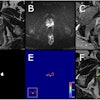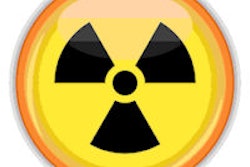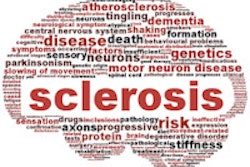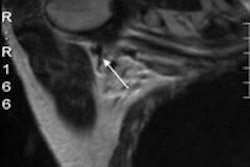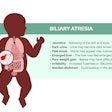The European Society of Radiology (ESR) has revealed its latest thinking and strategy for radiation protection. It wants greater use to be made of CT dose recording and dose repositories, and is launching a campaign at ECR 2014 in March.
"Radiation protection is an important pillar of the safety culture in radiology," noted the ESR statement, which was posted online by Insights into Imaging on 3 October. "Technology holds the key to developments in patient and staff radiation safety, and thus developing and utilizing dose management tools have the greatest potential."
The authors think there is a growing realization regulations alone are insufficient, and they aim to ensure appropriate tools and means of support are available to the medical community and stakeholders. Besides optimization, justification, clinical audits, and education, they believe diagnostic reference levels (DRLs) are particularly valuable tools.
At the core of the ESR's approach are the following 10 elements:
- Clinical decision support (CDS), which is seen as a high priority project to provide a European model of IT tools for implementing personalized medicine and patient-centric appropriateness. The initial emphasis will be on CT, pediatrics, women, and interventional radiology.
- More radiation protection training with certification.
- Clinical audit, which is a service to be provided by the society itself.
- Availability of more patient and referrer information, designed to strengthen contacts to radiology's partners, mainly through the website.
- Radiation protection campaign to be launched at the ECR in March 2014 and it will have a wide impact.
- Emphasis on CT dose recording in Europe and dose repositories as a first step.
- The drafting of ESR position papers and statements in the field of radiation protection on topical issues such as the imaging of healthy persons.
- Inclusion of a radiation protection column in the ESR's newsletter.
- Follow-up actions on European Commission (EC) projects like EMAN, MEDRAPET and appropriateness, with further research and development as well as new EC projects.
- Orientation of radiology leadership towards radiation protection.
Overall, the authors advocate a holistic approach, termed as globalization (indicating all the steps and involving all stakeholders), personalization (referring to patient-centric strategy), and safety. Enhanced protection of patients will result from this so-called GPS approach, they maintained.
"The ESR is convinced that the different components of radiation protection are often interrelated and cannot be considered in isolation," noted the statement. "The CDS system will allow the protection of patients in Europe through appropriateness, optimization actions through technological improvements, dose recording and dose management using DRLs, awareness through website and newsletters, and training with certification will all converge to patient safety and will provide a holistic (global) approach. Although the focus is on patient safety, staff safety issues will find a place wherever pertinent."
Among the essential components will be to determine steps in preparing a referral for imaging by physicians, appropriate decision-making for a particular study, scheduling, and standardized imaging protocol. Also vital will be optimization in the conduct of an examination and procedure by radiographers, and involvement of medical physicists for oversight in imaging with minimum dose and desired image quality, recording of doses, and quality control, according to the authors.
In primary care, there can be overuse and misuse of imaging, and for the ESR, this must be addressed by raising awareness, as well as making available guidelines.
The statement was drafted by Dr. Guy Frija (ESR president), Dr. Peter Vock (chairman of the ESR Radiation Protection Subcommittee), and Dr. Madan Rehani (ESR's director of radiation protection). It was approved by the ESR Executive Council in May 2013.
